to view content for your location.


Kuhner offers more than high-quality shaking machines. We share our knowledge to help scientists and engineers get the best out of their shaken bioprocesses. Our program offers in person, hands-on seminars and the new Kuhner Science Talk,a free online format for compact knowledge exchange.
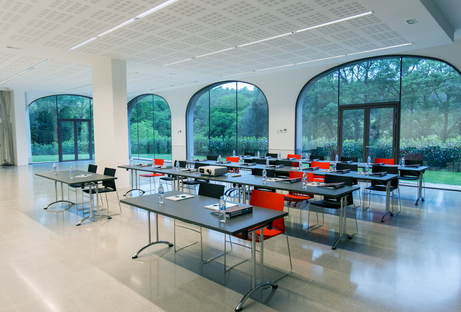


The
Kuhner Science Talk webinar series brings together scientific expertise and
practical know-how on shaken cultivation systems. Each session is designed to
provide concise, application-oriented insights in just 45-60 minutes.
Held
in English, the series offers two time slots per day (morning and afternoon) to
make participation easy worldwide. Across six modules per year, leading experts
from Kuhner and guest speakers will present topics that matter for
reproducibility, scalability, and innovation in bioprocessing.
After
each webinar, participants can request a certificate of attendance and a list of references used. For those attending multiple modules, the option of earning a
certificate is also available.
The
full agenda of the Kuhner Science Talk series is outlined below. We look
forward to welcoming you to the sessions!
Getting the basics right –Pitfalls in shake flask cultiva-tions & how to avoid them

Learn how to avoid common shake flask pitfalls with clear, practical rules on oxygen supply, shaking frequency, liquid volume, and closures
for reliable cultivations.
Thursday January 15th 2026
8am CET + 4pm CET
(Session in English)
Online Monitoring Inno-vations – for Shake Flasks & Microtiter Plates

Online monitoring makes faulty systems transparent; learn how our Kuhner TOM and microTOM systems improve applications and accelerate development.
Thursday June 11th 2026
8am CET + 4pm CET
(Session in English)
Beyond
the basics –
Tackling advanced pitfalls
in shake flask cultivations
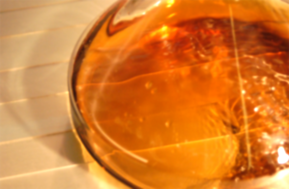
Hidden physical effects, like in-phase/out-of-phase motion & hydromechanical stress, can affect scale-up; this session shows how to make shake flasks transparent and reliable.
Thursday February 26th 2026
8am CET + 4pm CET
(Session in English)
Get what you screen for – Fed-batch cultivations at small scale
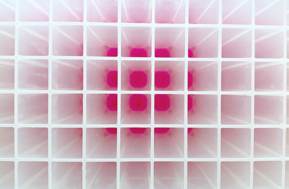
Fed-batch is vital yet challenging at small scale; this session presents feeding strategies enabling predictive, scalable experiments with controlled substrate delivery.
Thursday September 3rd 2026
8am CET + 4pm CET
(Session in English)
Mastering
microtiter plate cultivations – From mixing
to reliable results
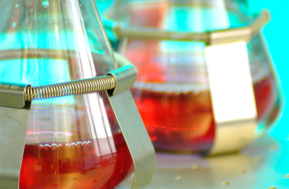
This session shows how shaking, closures, and oxygen transfer affect microtiter plate variability, presenting the Duetz system for reproducible screening.
Thursday April 16th 2026
8am CET + 4pm CET
(Session in English)
Scaling
up cell cultures – Parameters, pitfalls, and
the power of OSBs
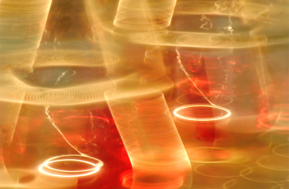
Scaling up needs the right strategy; this session reviews parameters, risks, and OSB advantages, offering practical guidance for robust bioprocess development.
Thursday October 29th 2026
8am CET + 4pm CET
(Session in English)
Our in-person seminars are designed to give you a solid understanding of shaken cultivation systems and how to make the most of them in your daily research. We combine theory with practice to ensure that participants can transfer what they learn directly into their laboratories.
> Comprehensive scientific input on hydrodynamics, oxygen transfer, mixing, closures, and scale-up strategies
> Troubleshooting workshops to uncover common pitfalls and how to avoid them
> Best-practice guidelines for reproducibility, oxygen supply, and cultivation strategies
> Networking opportunities with other researchers and with Kuhner application specialists
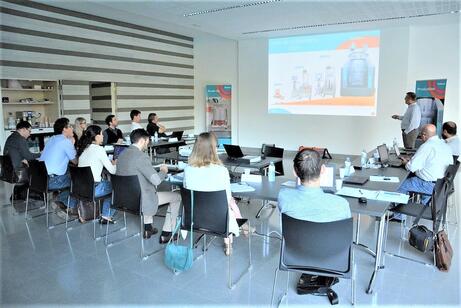
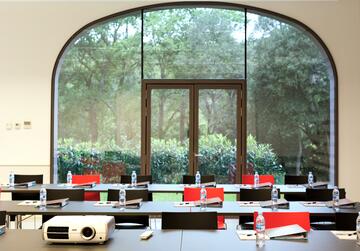
If you would like to be notified about future scientific seminars or you are interested in a specific seminar or training for your employees, please contact us: shakingtechnology@kuhner.com
You can also find more information in our flyer:
> Standard seminars at Kuhner headquarters in Basel, Switzerland
> Tailored in-house trainings at your facility
> Online seminars (1 - 1.5 h), for groups on a specific topic
> Small group size to ensure individual attention and active exchange
> Flexible program that can be adapted to your specific research focus
You will leave with a clear set of rules for robust shake flask and microtiter plate cultivations, practical experience with monitoring tools, and confidence in scaling up your processes.


The shaking table of an orbital shaker moves in a circle. The diameter of this circle is called the “shaking diameter”.
Most commonly used diameters are
On all Kuhner shakers the orbital movement can be changed at any time.
Yes. The shaking diameter is a key factor for the cultivating conditions in a shaken bioreactor. Given the same speed; the bigger the shaking diameter, the better the oxygen transfer rate inside the culture. This also applies to microtiter plates.
No. Microtiter plates can also be shaken with a larger diameter; the smaller the diameter, the faster the speed required (e.g. 700 rpm with 3mm). When choosing a larger diameter such as 50mm, a speed of 250 rpm may be enough to guarantee proper mixing and oxygen transfer.
In
a shaken bioreactor the mechanical stress on the cells is usually considerably
less than in a stirred system. In a stirred bioreactor there are two stress
effects: on the one hand you have small eddies near the impeller blades and on
the other hand, small bubbles burst on the liquid surface because the vessel is
sparged from the bottom. In a shaken bioreactor there is surface aeration and
the shaking movement gives uniform mixing without any local power inputs
No. Kuhner shakers have a unique drive system emitting less than 10 watts of heat.
Kuhner has the option of blackened windows to prevent light affecting your medium.
The smaller the volume and the longer the fermentation time, the more the evaporation rate affects your cultivation. Evaporation can be reduced by using special lids, stoppers, adhesive foils etc. One example is the Duetz system for microtiter plates. It is also necessary to humidify the incubator chamber.